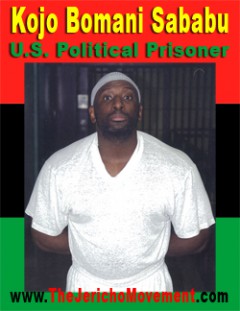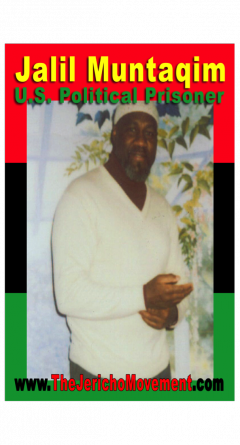On The 50th Anniversary Of The “Summer Of Love, 1967”- “Hippie Modernism: The Struggle For Utopia” At The Berkeley Art Museum
By Special Guest Social Commentator Alex James
[Recently, under the aegis of my oldest brother Alex, today’s special guest commentator, I have been “commissioned” to do a wide ranging series of writings, sketches really, around the theme of the “Summer of Love, 1967” to be made into a small tribute book in honor of his and his “corner boys” from the Acre section of North Adamsville long departed friend Peter Paul Markin. It was Markin who was the main connection between them and the events which transpired in the Bay Area that long ago and which arguably changed their lives forever. Of if not changed forever put a big kink in the way that they were originally heading. The impetus for the project had come about after Alex had gone on a business trip to San Francisco and almost by happenstance noticed an advertisement on a passing Muni bus for an exhibit at the de Young Art Museum on entitled The Summer of Love Experience. That perked his interest enough to take sneak time from his conference business to attend. And will be the subject of an up-coming sketch. Today’s commentary is along those same lines because not only was the de Young having its version of celebrating that event but over on the East Bay in Berkeley, another center of that summer’s “youth nation” surge, the University Art Museum had mounted an exhibition with the intriguing title-Hippie Modernism; the Struggle for Utopia. Alex jumped on the BART one day after his business was finished up for the day to check this display out. Zack James]
*******
I am not usually much for writing outside of my business interests or I should say my law practice which is my business interest and leave the biting or witty social commentary to my youngest brother, there were six of us to divvy up the social chores, Zack, who has made a career out of such endeavors. Except events this spring around the almost half-forgotten Summer of Love, 1967 which I, and the rest of the guys I hung around with all through public school, were as Zack said one time “washed clean” by that extraordinary “new breeze” that got a big tailwind from that happening. “Happening” a word very closely associated with all the crazy, goofy, outlandish and in some sad instances pathetic things that went on when we were forced to head west and see what it was all about. Forced by one mad monk of a man, Peter Paul Markin, known as the “Scribe” from junior high school on. A small letter “prophet” unlike a capital letter prophet like Allan Ginsberg who blew Markin away with his Howl in high school which he would recite to us when he was half drunk (or later half-stoned) and which we could have given a fuck about at the time all we cared about was grabbing petty larceny dough, girls, and fast cars not always in that order, after all was said and done, what little good it ever did him in the long haul to “check out the new breeze coming over the land.”
All that will be, or already has been, detailed in the little tribute book we asked Zack to put together with his sketches on those times and our, the surviving corner boys’ remembrances, in honor of Markin. Like Zack said in his introduction I had been in San Francisco for a law conference and was walking up Geary Street and noticed an advertisement for the de Young Museum in Golden Gate Park which was presenting an exhibition titled The Summer of Love Experience. I did attend that exhibition and will give my take on that emotional experience shortly. While at that exhibition one late afternoon after the conference was over for the day I overheard a conversation between two old geezers (yeah, like me, like me) about an exhibit over in Berkeley at the University art museum. They didn’t give the title of the exhibition at the time. Had just said it was about hippies. But when I went to look it up it had the title, the very interesting title-Hippie Modernism: the Struggle for Utopia I couldn’t resist before I left Frisco taking that exhibit in on two counts; it was an unusual way to describe a certain modernist artistic sensibility that I think we were trying to create and a very apt way to describe what the whole “seek a newer world” experience (a term Markin used incessantly via Robert Kennedy when it counted) was about, or what we thought we were trying to do. Zack has mentioned in a few of his sketches that we have faced more than forty years of blow-back from the Molochs (thanks Allan Ginsburg’s Howl for that) which show no signs of abating soon for not creating that utopia, or something close to it. He was right as rain on that score.
I have already given Zack notes and paragraphs of information with my take on how we lost dog corner boys from the nowhere Acre section, the dirt poor working class section of North Adamsville, under the whip of one mad monk Markin wound up spending various amounts of time working through the implications of the Summer of Love which kind of brought all the tattered remnants of “youth nation,” and it really was that, at least it is no misnomer to call it that when the sons of working stiffs met up with the scions of the Mayfair swells to give the Molochs a run for their money for a while anyway. What came to mind viewing this Hippie Modern exhibit is how varied the ideas were that we were trying to get people, and frankly “people” then was just shorthand for youth nation for we were in a serious confrontational battle with our parents’ generation and their leaders over these proposed changes. A very unusual time in that respect since generations since have developed their own styles but have not come to blows with their parents’ generations in quite the same way. My three twenty somethings still living at home with seemingly no immediate prospects of leaving to fly on their own against my leaving home as a teenager tell the reader all he or she needs to know about that difference.
Of course a University museum, especially at an elite school which was probably the overall cultural if not political epicenter of the times, is going to highlight some of the ideas and creations which its alumnus or those who hung around the school there produced. And there really was an amazing amount of printed material produced then detailing everything from how to build an environmentally sustainable house to the outer edges of rational social and political theory (think Marcuse, McLuhan, guys like that). The Chinese only half-seriously had called such a movement in their own country in the late 1950s “let one hundred flowers bloom” and in those naïve blessed hippie days there were many more than that number of ides floating around in the space we had created. Whoever could put pen to ink, or to the drawing board had space to work in. Frankly some of the ideas seem today, today when we are not under the influence of strong drugs, sexual desire, or some odd-ball background music which colored most of our thinking back then, crackpot but others are as fresh as whatever Silicon Valley is pressing on the public these days. I had a thought that maybe, just maybe if we had done more organizing around some simple things instead of creating full-blown manifestos for every occasion we might had struck a deeper chord. Maybe though that time, our print-driven time, was the last gasp of print, of literary means of effective persuasion.
The heart of the exhibit though, the part that along with the de Young exhibit pieces got me on the phone, the cellphone, to all the surviving corner boys who went West at Markin’s beck and call were the photographs and poster art that brought back so many memories. I might as well put in here that not everybody went, wanted to go, or could go like Ricky Russo who got wasted in some fucking rice paddle in Vietnam for no good reason and never even had a chance to have Markin work his words on him to go out like he did with the rest of us.
Memories of going with Markin on the road, yeah, the hitchhike road since I had no real dough, both of us with knapsacks and slim bedrolls, grabbing long and short haul rides, sleeping in ravines and in the back of trucks, getting rides all the way from every kind of traveler from hardened truck-drivers who thought we looked like their wayward sons back home who they did not understand any longer to welcome wagon Volkwagen minibuses filled with “freak” who pulled up and cried jump in and getting to the fresh smell of the bay in anywhere between six days and two weeks. What was time anyway once you were on that road. Sleeping in all kinds of communal flops in or near Haight-Ashbury, panhandling or working day labor for food, and smoking and ingesting every kind of drug except maybe booze which had been our natural “high” around the block but which seemed passe out in the new wilderness where we were to be “washed clean” as Markin when he was the beautified saint of our mission used to say. Most strikingly though were the posters and other artwork that at the time were just “commercial” efforts to let people know when a “happening” or a concert was coming up. I was surprised by how grand the artwork was for items that were just then advertisement but turned out to have been genuine works of art as seen as such by their creators. No one can argue against that point now, or should.
I freaked out when I saw a photograph of an old time school bus, what Markin used to call the yellow brick road magical mystery flying carpet, converted to a moving living communal set-up pioneered by max daddy Ken Kesey and his Merry Pranksters and which travelled up and down the Coast. We had travelled while on the Coast in a caravan like that with a guy named Captain Crunch that one of the guys will talk about in the tribute book who as well as personally knowing Kesey (we had gone to one of those famed be-ins at his La Honda digs) was nothing but the king hell king of our existence for a couple of years. That travelling caravan would be the way we would have gone to this or that concert by the Doors or the Jefferson Airplane at the Fillmore or in Golden Gate Park. Playing for free or a couple of bucks. (I did a double take when I saw those ticket prices beyond the many free concerts by the big name Bay-based bands including one poster which advertised a three day concert for five dollars for the whole thing. Jesus, some things were righteous then when I think I have paid many hundreds of dollars in recent years to go to a Stones concert). Yeah, as Zack said, to be young was very heaven.
The only thing that did not ring true, or was outside our purview, was a section dedicated many photographs of a group of drag queens called the Cockettes (draw whatever conclusion you like about that moniker) and which later morphed into another such group with a different name which I don’t remember. Sure we would see drag queens, “dykes” and “faggots” around the concerts and festivals after all San Francisco even then was a safe haven for same-sex seekers (and other misfits like communists, beat poets, and runaways from North Adamsville and all such places in between). Nowadays in the new sensibility nobody gives a fuck who you love or why, how you want to dress yourself before the world or why but then we sons of the working class had very backward views about the sexually different and those who identified that way. I can remember one time when we went down to Provincetown, Markin included, just to bait the “fags” that made the place then notorious for us straights. But you know you can learn something in this wicked old world as Markin used to say and after “getting religion” as Markin also used to say when we got hip to the world a little better when my son came out of the closet I wish we had gotten to know those “dames” and their hangers-on better because from the photographs some of them looked kind of foxy and probably fun to be around. Yeah, I looked it up, looked up the full Wordsworth quote that Zack is using for the series-the other part applies too-“Twas bliss to be alive.”


